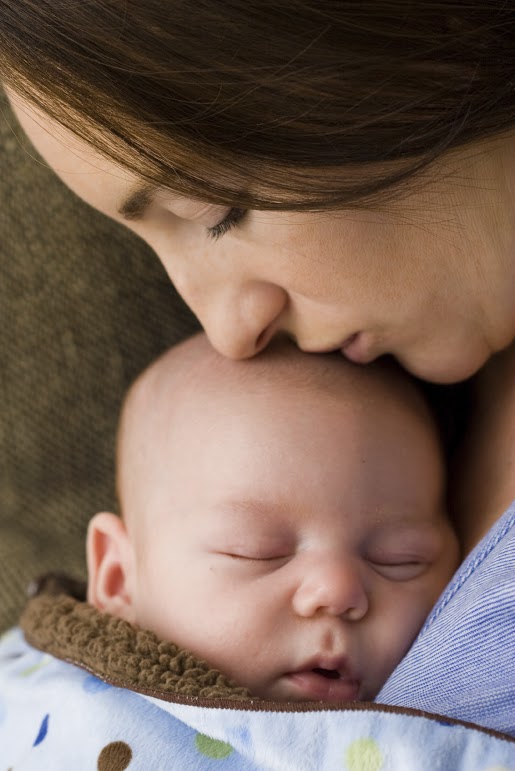Depression and Pregnancy
Definition
Antenatal depression: major or minor depressive episode that occurs during pregnancy
Postpartum depression: major or minor depressive episode that occurs during the 12 months following the birth of a child1
-
Of note, postpartum psychosis is a distinct condition characterized by hallucinations, delusions, and/or disorganized thoughts that usually begin within 2 weeks of childbirth
-
Differentiate postpartum depression from “baby blues”: short crying spells, irritability, poor sleep, nervousness, and emotional reactivity that resolve within 10 days and are not considered a depressive disorder1
Prevalence
Antenatal depression:
Postpartum depression:
-
Approximately 14.5% of women develop major or minor depression during the first 3 months following birth2
-
14% of Maryland mothers reported symptoms of postpartum depression, and 8% reported receiving a diagnosis of postpartum depression 4,5
-
Postpartum depression affected mothers of all races, ethnicities, and ages
-
The biggest risk factor for postpartum depression is a personal history of depression (including previous postpartum depression, antenatal depression, or major depressive disorder)
“Baby blues” affect 40-80% of women6
Health Impact
Perinatal depression is associated with:
-
decreased prenatal care visits7
-
alcohol, tobacco, and drug use during pregnancy7
-
intimate partner violence8,9
-
decreased rate of initiation of breastfeeding10
-
increased risk of poor mother-infant bonding, infant growth and developmental delays, and anxiety and depressive symptoms later in the infant’s life1
-
increased risk of suicide11
Perinatal depression may also be associated with adverse pregnancy outcomes such as low birth weight and preterm delivery, but the exact relationship is still controversial10
Screening
What if screen is positive?
-
-
Resource phone number for women with perinatal depression: 1-800-PPD-MOMS (24-hour helpline)
-
-
Psychotherapy in an individual or group setting is effective for mild to moderate postpartum depression1
-
Medication combined with psychotherapy is effective for moderate to severe postpartum depression1
-
Electroconvulsive therapy (ECT) is another treatment option
-
The risks and benefits of antidepressant use vs. untreated depression must be weighed individually for each patient, since untreated maternal depression can have a negative effect on the fetus or newborn12
References:
-
Hirst KP, Moutier CY. Postpartum major depression. Am Fam Physician. 2010 Oct 15; 82(8):926-33.
-
Gaynes BN, Gavin N, Meltzer-Brody S, et al. Perinatal depression: prevalence, screening accuracy, and screening outcomes. Evid Rep Technol Assess (Summ). 2005 Feb; (119):1-8.
-
Larsson C, SydsjöG, Josefsson A. Health, sociodemographic data, and pregnancy outcome in women with antepartum depressive symptoms. Obstet Gynecol. 2004; 104(3):459.
-
-
-
Roy-Byrne PP. Postpartum blues and unipolar depression: Epidemiology, clinical features, assessment, and diagnosis. In: UpToDate, Solomon D (Ed), UpToDate, Waltham, MA. (Accessed on December 4, 2014.)
-
Bonari L, Pinto N, Ahn E, et al. Perinatal risks of untreated depression during pregnancy. Can J Psychiatry. 2004; 49(11):726.
-
Martin SL, Li Y, Casanueva C, et al. Intimate partner violence and women's depression before and during pregnancy. Violence Against Women. 2006 Mar; 12(3):221-39.
-
Ludermir AB, Lewis G, Valongueiro SA, de Araújo TV, Araya R. Violence against women by their intimate partner during pregnancy and postnatal depression: a prospective cohort study. Lancet. 2010 Sep 11; 376(9744):903-10.
-
Grigoriadis S, VonderPorten EH, Mamisashvili L, et al. The impact of maternal depression during pregnancy on perinatal outcomes: a systematic review and meta-analysis. J Clin Psychiatry. 2013; 74(4):e321.
-
Lindahl V, Pearson JL, Colpe L. Prevalence of suicidality during pregnancy and the postpartum. Arch Womens Ment Health. 2005; 8(2):77.
-
Cohen LS, Altshuler LL, Harlow BL, et al. Relapse of major depression during pregnancy in women who maintain or discontinue antidepressant treatment. JAMA. 2006 Feb 1; 295(5):499-507.
12/2014

